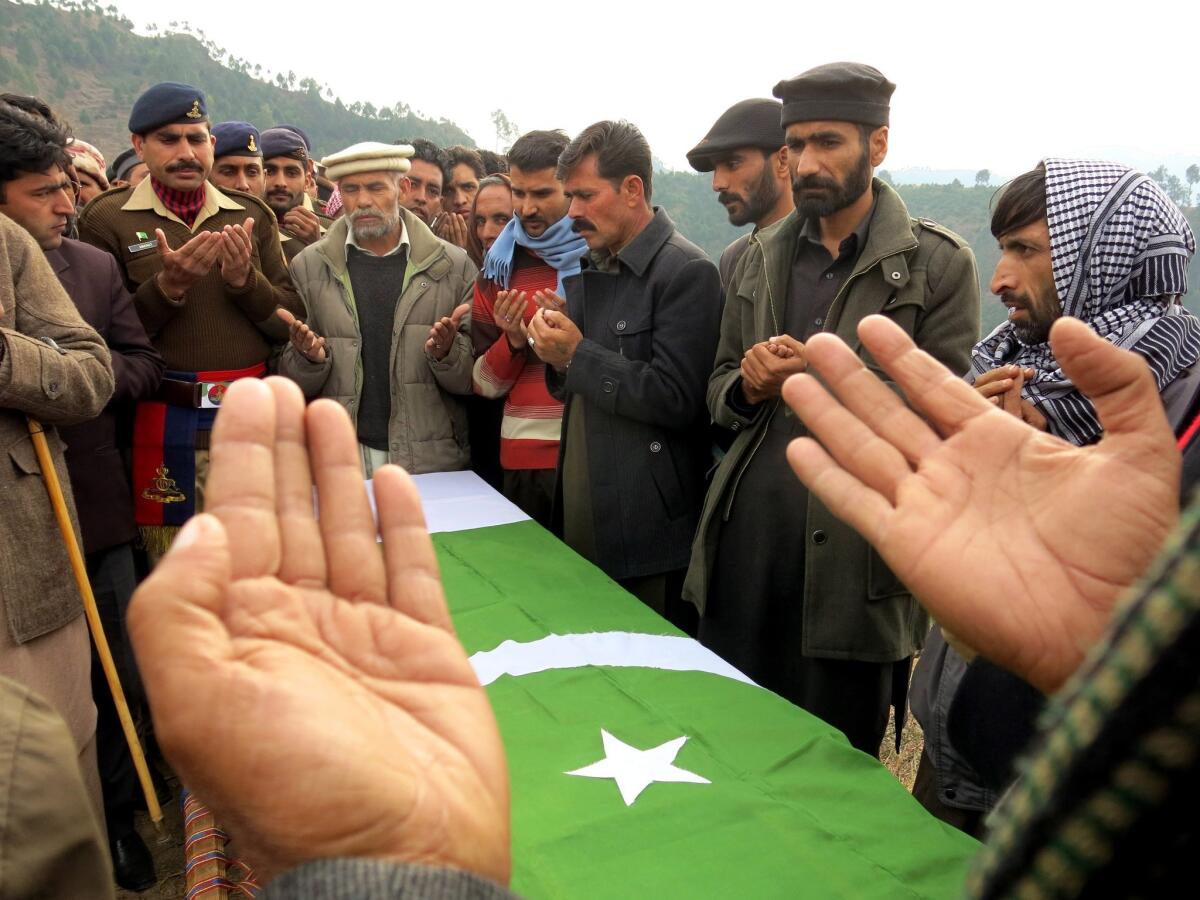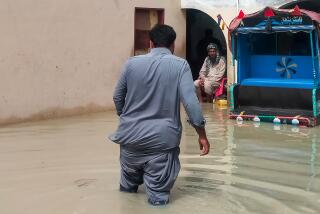Pakistan launches airstrikes on suspected militant hideouts

PESHAWAR, Pakistan -- After two days of deadly attacks against security forces, Pakistani air force jets bombarded suspected insurgent hideouts in the country’s tribal belt early Tuesday, killing at least 20 people, officials said.
Residents reached by telephone said the airstrikes began around midnight and continued for over an hour in North Waziristan, a lawless zone in the tribal belt that is believed to be a haven for Pakistani Taliban and Al Qaeda militants who carry out attacks in Pakistan as well as across the border in Afghanistan.
Pakistani security officials claimed that multiple hideouts were struck and that 20 militants were killed. Residents said the death toll was 25. The Times could not verify the accounts independently or determine whether the dead were militants or civilians.
“Planes were roaring in the sky late night, which created panic and people could not sleep,” one resident of Miram Shah, the administrative capital of North Waziristan, said by phone.
Media reports said that civilians fled villages surrounding Mir Ali, the second-largest town in North Waziristan, as women and children sought refuge from the bombings. Residents said that among the villages bombed in Mir Ali were Haiderkhel, Tapi, Khatti Kali and Hamzoni Kali. They said that some residential compounds also came under fire.
Security officials, who requested anonymity to discuss the sensitive information, said suspects involved in a pair of deadly suicide attacks on a church in Peshawar, a provincial capital in northwest Pakistan, were killed in Tuesday’s strikes.
The airstrikes amounted to a reprisal operation after two days of successive bombings against Pakistani security forces. An explosion at an army garrison in the northwestern town of Bannu on Sunday killed at least 22 soldiers and wounded 30 others. On Monday, a suicide bombing near Pakistani army headquarters in Rawalpindi killed 13 people including six soldiers.
The Pakistani Taliban, whose leaders aspire to overthrow the government in Islamabad and install an Islamic state, claimed responsibility for both attacks and vowed to carry out others. The area targeted in Tuesday’s bombings is known to be a headquarters for the Pakistani Taliban.
Prime Minister Nawaz Sharif is under growing pressure from opposition parties in Islamabad either to begin peace talks with the Taliban or launch decisive military action. U.S. officials also have pressed Sharif to crack down on the militants.
Pakistan’s interior minister, Chaudhry Nisar Ali Khan, visited Bannu on Monday and said the government was ready to open peace talks with the Taliban but that insurgent leaders were unavailable. Pakistani officials claim that the leader of the Pakistani Taliban, Maulvi Fazlullah, is in hiding in Kunar province in eastern Afghanistan.
Separately on Tuesday, two women and one man working on a polio vaccination campaign were shot and killed in the southern port city of Karachi by unknown assailants. It was the latest murder of polio workers in Pakistan, and though no group immediately claimed responsibility, the Pakistani Taliban oppose polio vaccinations, believing them to be a cover for Western espionage.
Pakistan is one of only three countries in the world where polio remains endemic, in part due to militant attacks on health workers administering the vaccine.
ALSO:
Mexican vigilante groups refuse to lay down arms in Michoacan
Sochi Olympics safety fears soar after video, ‘white widow’ report
‘Hello, world’: Rosetta spacecraft wakes for comet-chasing mission
Twitter: @SBengali
Ali is a Times special correspondent. Times staff writer Bengali reported from Mumbai, India.
More to Read
Start your day right
Sign up for Essential California for news, features and recommendations from the L.A. Times and beyond in your inbox six days a week.
You may occasionally receive promotional content from the Los Angeles Times.







